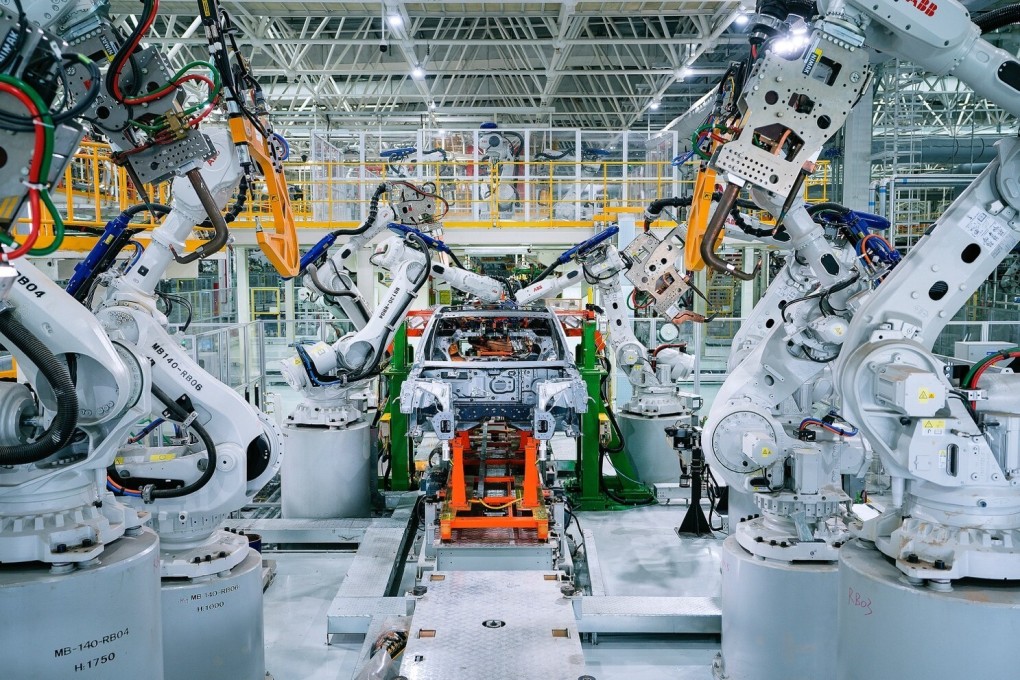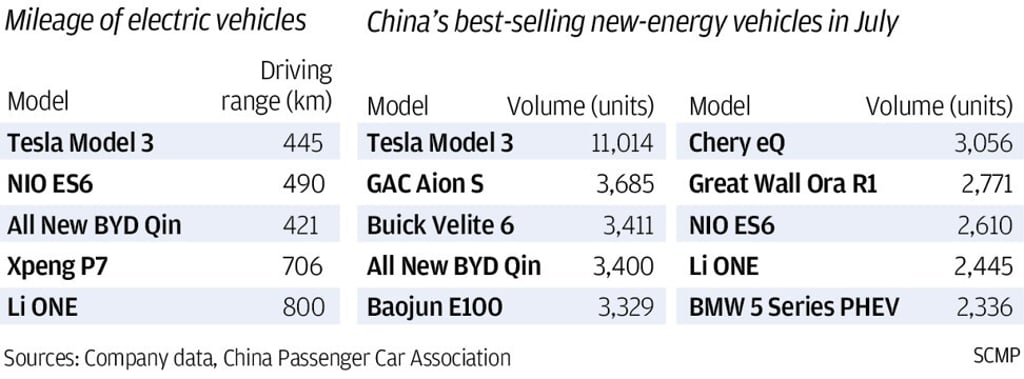Exclusive | Tesla’s Chinese rival Xpeng fits P7 electric saloon cars with fast-charging, short-range batteries to pass cost savings to customers
- A fast-charging lithium iron phosphate (LFP) battery pack will be available as an option on the P7 model starting in May, two sources said
- The LFP batteries, which can go as far as 480km (298 miles) on a single charge, will cost about 20,000 yuan (US$3,000) less

Xpeng, one of Tesla’s most aggressive competitors in China, plans to fit its P7 all-electric saloon car with a cheaper battery to pass the cost-savings to its price-sensitive customers and help it get ahead in the country’s cutthroat vehicle market.
A fast-charging lithium iron phosphate (LFP) battery pack will be available as an option on the P7 model starting in May as an alternative to the lithium nickel manganese cobalt oxide (NMC) version in use, according to two sources with knowledge of the plan.
The LFP batteries, which can go as far as 480km (298 miles) on a single charge, or one third less than the 703km range on the NMC pack, will cost about 20,000 yuan (US$3,000) less. Some of the savings in the cost of the battery pack will be passed on to customers to reduce the P7’s sticker price, the sources said, declining to elaborate.
“Xpeng is preparing to expand its customer base as competition heats up this year in the premium segment” for electric vehicles, said Gao Shen, an independent analyst on the manufacturing industry in Shanghai, who has not been briefed on the Chinese start-up’s plans. “It remains to be seen whether the new version could be sold at a price below 200,000 yuan.”
